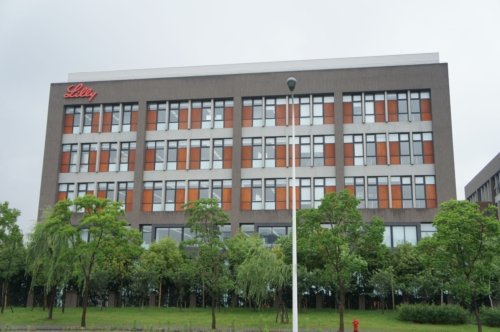
The center will focus on R&D of innovative diabetes medicines with novel mechanisms tailored for the Chinese population
Singapore: Eli Lilly officially opened the Lilly China Research and Development Center (LCRDC) on May 30, keeping with its commitment towards China. The center will focus on discovering innovative diabetes medicines with novel mechanisms that can be tailored for the Chinese population to delay the progression of the disease.
Affecting nearly 90 million Chinese people, diabetes is a significant national public health problem, due in part to longer life expectancies, dietary changes and a sedentary lifestyle emerging in China. Differences in the genetic makeup of Asian patients may also play a role in diabetes development and progression, and exploring these differences is a priority for the LCRDC.
The LCRDC, which employs approximately 150 scientists and staff hired primarily from China, is the latest in a series of significant research and development (R&D) investments by Lilly.
"Conquering a devastating disease like diabetes requires innovation, collaboration and investment. The establishment of the Lilly China Research and Development Center demonstrates that we are serious about discovering and developing desperately needed breakthrough medicines for Chinese people with diabetes," said Dr Jan M Lundberg, executive vice president, science and technology, and president, Lilly Research Laboratories. "We will do this by looking at diabetes in new and different ways and through collaborations with local academic research centers and partners that enable us to link Lilly scientists with scientists in China. With an eagerness and optimism to explore new theories about disease development and progression and potentially translate this to tailored diabetes medicines, I believe we will make a difference for people with diabetes, in China and around the world."
Exploring the genetic profiles of Chinese, and eventually Asian, people with diabetes is a key area of research being conducted at the LCRDC. For example, Chinese people with diabetes have a significantly lower average body mass index (BMI) than Americans with diabetes. Chinese people with diabetes also tend to have a higher prevalence of abdominal obesity, fatty liver and insulin resistance than do non-Asians with diabetes. Research to better understand these characteristics may offer opportunities for discovering new medicines to treat diabetes.
"Diabetes has reached epidemic proportions in China - there are more people in China with diabetes than in any other country in the world, with as many as three-quarters of them not having adequate control of their disease," said Bei Betty Zhang, vice president, China Research and site head and general manager, LCRDC. "The research community needs to better understand the genetic and environmental factors that underlie this epidemic so that we may discover medicines that address these factors. At the Lilly China Research and Development Center, we will explore innovative ways to address this unmet patient need, such as targeting pathways involved in disease pathophysiology and partnering with the Chinese academic network to investigate unique features of diabetes in Chinese patients, with the goal of discovering breakthrough treatments."
In the near term, the work at the LCRDC will focus on evaluating a pool of highly-selective targets with the potential to deliver robust candidates, helping to feed the Lilly portfolio with novel treatment opportunities.




